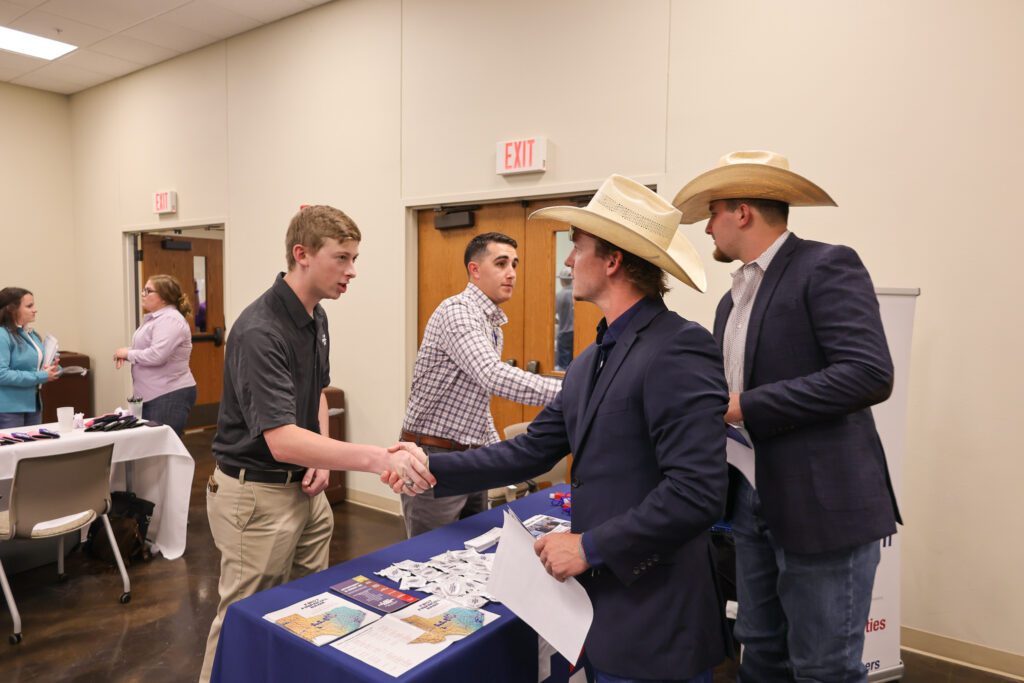Master of Science in Agricultural Economics
Gain a deeper knowledge of your chosen career field and further develop analytical skills in agricultural economics, business planning, credit and finance, and resource allocation in production and marketing in production agriculture and agribusiness.
Choose from the following program options:
- Agricultural Economics -Thesis Track
- Agribusiness Non-Thesis Track
A non-thesis student can complete the program as quickly as a year, minimizing the time away from work and maximizing the long-term return on investment.
Program faculty are dedicated to our graduate students and will work closely with you to develop a master’s degree plan tailored to your career goals and personal needs. You can attend classes 100% online, or a hybrid of face to face and online, which allows you to continue to work while completing degree program requirements at a distance.
What is Agricultural Economics?
Agricultural Economics is an applied field of economics concerned with the application of economic theory in optimizing the production and distribution of food and fiber products. Agricultural economics includes a variety of applied areas, having considerable overlap with conventional economics. Agricultural economists’ contributions to research include econometrics, development economics, production economics, marketing, agricultural policy, and environmental economics. Thus, agricultural economics influences food policy, agricultural policy, and environmental policy.
What Can You Do with Your Master’s Degree in Agricultural Economics?
A master’s degree in Agricultural Economics provides career opportunities in agribusiness, general business, major organizations, government, and higher education including colleges and land grant institutions, i.e., Texas AgriLife Extension of Texas A&M University.
The following are samples of where our graduate students are employed:
- AgTexas Farm Credit Services
- College Instructors (then PhD graduates and university faculty)
- Sanderson Farms
- Farm and Ranch owners and custom farm contractors
- Food retailers including Central Markets-HEB
- Texas AgriLife Extension Service
- Purina Feeds
- TSC – Tractor Supply Corporation
- Texas Farm Bureau
- Texas Beef Producers (a ranching, farming, stocker back-grounding and cattle feeding company, Texas High Plains)
- US Army
- Numerous banks and financial institutions
- Government and state agencies including the U.S. Department of Agriculture (USDA)

Estimated Completion
36 Credit Hours (18+ months)
Application Process
- Admission to Tarleton State University – Graduate Studies
- Additional Program Application Requirements
Cost
Locations Available
- Online 1
1 Non-Thesis Concentration
Departments
College
Why Study Agricultural Economics?
Either AGEC track provides for next level career readiness through a combination of research, firsthand learning, and in-class instruction.
What Classes Will You Take as an Agricultural Economics Grad Major?
As expected, the majority of your courses will be in AGEC, Economics and Business. Whether thesis or non-thesis, you have six hours of electives which provides some choice in courses in other disciplines to achieve your career goals.
Accreditations
Facilities and Features
What Master’s Degree Programs Are Related to Agricultural Economics?
- MS in Animal Science
- MS in Agricultural and Natural Resource Sciences
- MBA in Business Administration





